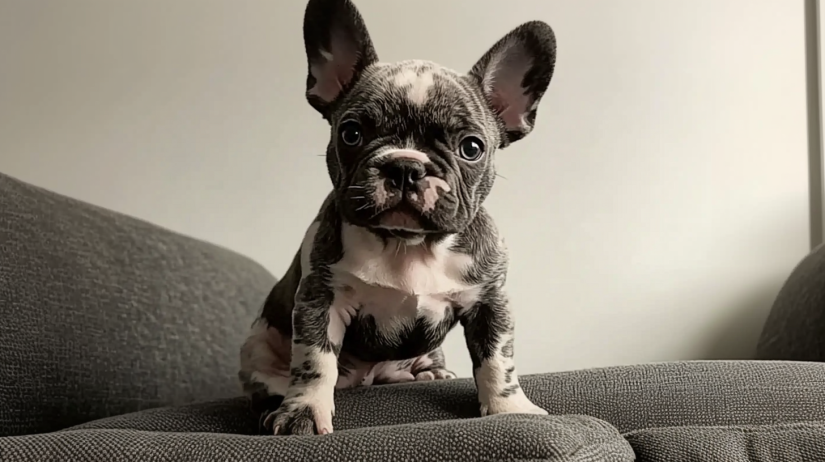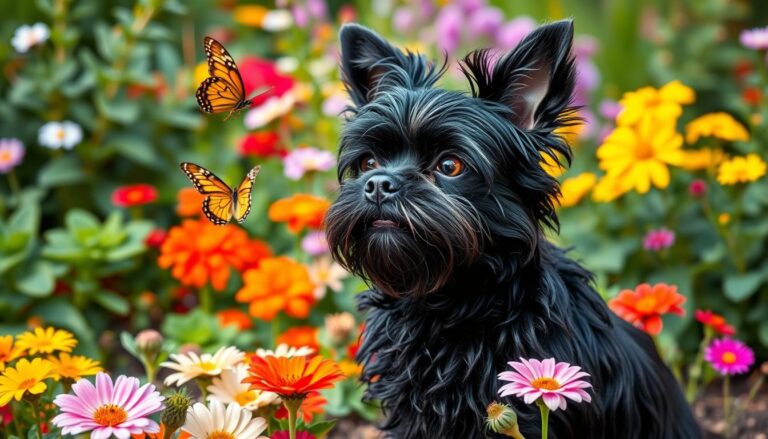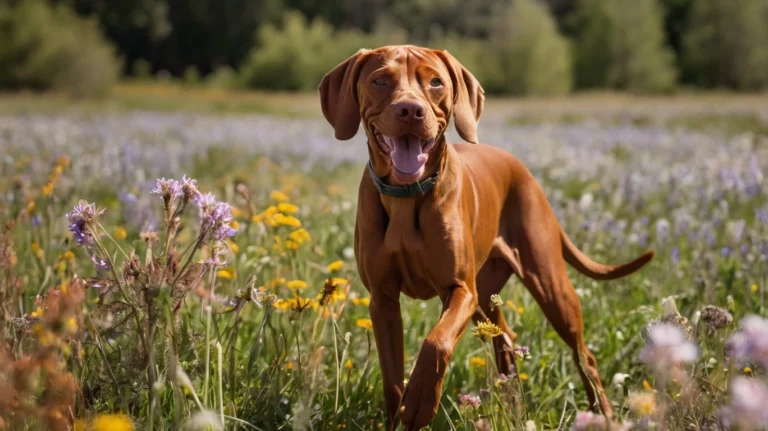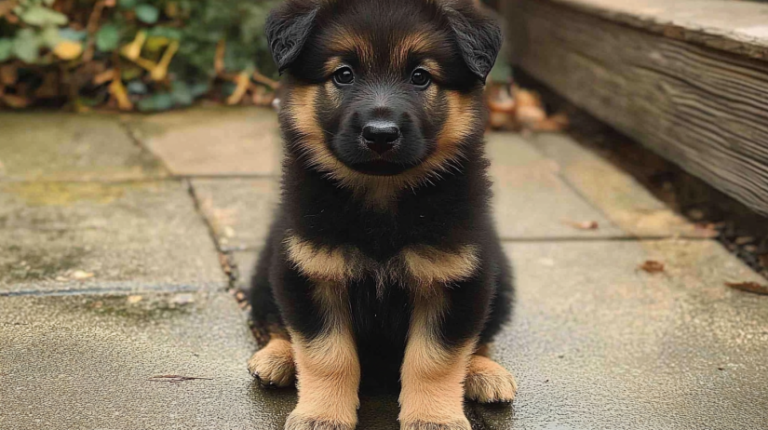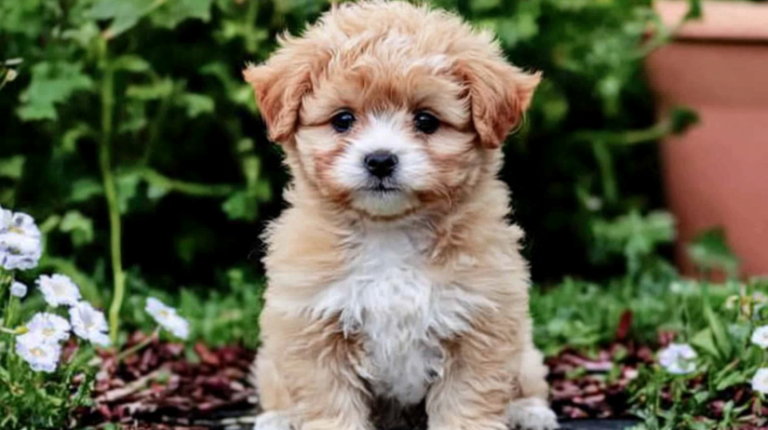Frenchton Puppies: 7 Positive & Dazzling Facts
Introduction
Imagine coming home from a long day to a stocky, bright-eyed little furball galloping toward you, wiggling with pure excitement. That’s the typical homecoming scene if you live with frenchton puppies—pint-sized bundles of fun that can’t wait to shower you with affection and goofy antics. Whether you’re drawn to the French Bulldog’s signature bat ears or you adore the Boston Terrier’s feisty charm, this unique hybrid might just combine everything you love about both breeds.
Yet, bringing frenchton puppies into your life isn’t only about snorts and tail wags. You’ll also need to think about things like their potential for respiratory issues, grooming needs, daily exercise, and how they’ll fit into your household routine. By understanding their traits, daily care requirements, and the joys (and challenges) of raising them, you can decide if these adorable dogs are the right match for your home. Let’s dive into the playful world of frenchton puppies and explore what makes them so special!
Frenchton 101: A Quick Heritage Lesson
Origins and Breed Development
Frenchtons are a fairly recent hybrid; breeders started crossing French Bulldogs and Boston Terriers to create a dog with fewer health complications than a pure French Bulldog while retaining the compact size and social personality. Although they’re not recognized as an official breed by major kennel clubs (like the American Kennel Club (AKC)), these pups have gained a loyal following among dog enthusiasts seeking a playful, moderate-energy companion.

French Bulldog Ancestry
French Bulldogs originated in England as miniature Bulldogs, later gaining popularity in France among lace workers, eventually leading to the breed name “French Bulldog.” They’re recognized for their playful, somewhat stubborn nature and iconic bat-like ears. However, they can also have challenges with breathing, known as brachycephalic syndrome, because of their flat faces.
Boston Terrier Roots
The Boston Terrier, famously nicknamed the “American Gentleman,” was developed in the United States from crossing various bulldog and terrier types. They typically present a sleek tuxedo-like coat, a lively disposition, and an extremely social temperament. They stand out for their agility and pep, traits that can help offset some of the respiratory issues seen in French Bulldogs.
The Resulting Hybrid: Frenchton Puppies
By combining these two breeds, breeders hope to maintain the characteristic “squishy” face and stocky build of the French Bulldog while incorporating some of the athleticism and fewer respiratory difficulties often observed in Boston Terriers. Of course, every puppy is unique, so frenchton puppies can display a wide range of appearances and personalities—but many owners report that they’re affectionate, sociable, and downright adorable.
Physical Characteristics
Size and Weight
frenchton puppies typically stand around 11–16 inches at the shoulder once fully grown. Their weight generally falls between 15–25 pounds, making them a small-to-medium sized companion that can adapt well to apartment life. However, feeding and exercise management is crucial because, like both parent breeds, Frenchtons can become overweight if not carefully monitored.
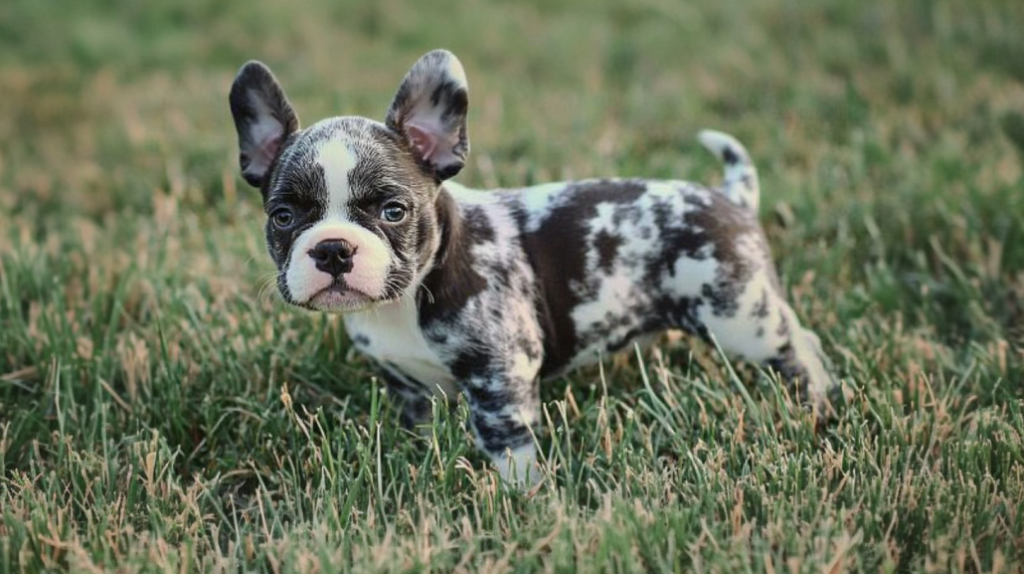
Coat and Coloring
When it comes to coloration, frenchton puppies often display combinations reminiscent of the Boston Terrier:
- Black and White: Tuxedo or “piebald” pattern
- Brindle: Speckled or striped patterns of black, brown, or gray
- Fawn: Various shades of tan or light brown
- Cream: A soft, pale coat color
Coats are usually short and smooth, requiring minimal grooming. That said, you can still expect moderate shedding, which can be managed with regular brushing.
Facial Features
Like French Bulldogs, many frenchton puppies have that cute, brachycephalic (flat-faced) look with a short muzzle and wide-set eyes. Some inherit slightly longer snouts from the Boston Terrier side, providing better breathing capacity. Their ears may stand upright like a French Bulldog’s or fold slightly at the tip, reminiscent of a Boston’s ears.
Table: Growth Stages of a Frenchton Puppy (Approximate)
Below is a rough timeline of what you can expect as your frenchton puppy grows, although individual development varies:
| Age | Estimated Weight Range | Physical/Behavioral Milestones |
|---|---|---|
| 8–10 Weeks | 3–6 lbs | Transition to new home, early socialization, crate intro |
| 3–4 Months | 6–10 lbs | Teething phase, basic obedience commands |
| 5–6 Months | 8–15 lbs | Increased curiosity, refining potty training |
| 7–9 Months | 10–20 lbs | Adolescence, energy surges, require consistent discipline |
| 1 Year+ | 15–25 lbs | Adult size, establish daily exercise routine, final muscle definition |
Personality and Temperament
Social and Friendly
Much like their parent breeds, frenchton puppies tend to be outgoing and love being around people. They frequently become “velcro dogs,” following you from room to room to stay close, especially if you shower them with attention. This high sociability means they often bond strongly with families, children, and other pets.
Playful yet Moderate Energy
Expect your frenchton puppy to indulge in daily bursts of excitement and play, especially when younger. Fetch, tug-of-war, and interactive puzzle toys can keep them entertained. However, their energy levels are generally moderate, so while they enjoy short walks and playful romps, they typically also appreciate downtime snuggled on the sofa.
Stubborn or Eager to Please?
Both the French Bulldog and the Boston Terrier can exhibit stubborn streaks, so you might see your frenchton puppy occasionally ignoring commands if they’re feeling headstrong. On the other hand, many Frenchtons lean more toward the Boston Terrier’s eagerness to learn and perform tasks, responding well to fun training sessions.
Great Apartment Companions
With their smaller size and moderate energy, Frenchtons can do well in apartments or condos, as long as they get adequate walks, potty breaks, and mental stimulation. They typically aren’t big barkers unless something truly alarms them (though each puppy’s personality is unique).
Caring for Your Frenchton Puppy
Nutrition and Feeding
- Puppy-Specific Kibble: Select a formula designed for small-to-medium breeds, with high-quality protein sources.
- Portion Control: Overfeeding can lead to obesity, exacerbating potential respiratory or joint issues. Follow your vet’s recommendations for daily calorie intake.
- Scheduled Meals: Two or three small meals a day typically suit a frenchton puppy. Gradually shift to two meals as they near adulthood.
Exercise and Activity
Although frenchton puppies aren’t marathon runners, they still need daily exercise:
- Short Walks: Two or three 15–20 minute walks per day can keep them engaged and healthy.
- Indoor Play: Puzzle toys, hide-and-seek, or short fetch sessions are ideal.
- Avoid Overexertion: Brachycephalic features make them prone to overheating, so keep an eye on breathing and rest time, especially in hot weather.
Training and Socialization
- Early Socialization: Introduce your puppy to different people, environments, and sounds to build confidence.
- Positive Reinforcement: Offer treats, praise, or toy rewards for good behaviors.
- Short Sessions: frenchton puppies can lose interest if training sessions drag on. Keep lessons fun and upbeat.
- Crate Training: Helps with potty training and provides a safe, cozy den. Introduce it as a positive space early on.
Grooming Basics
- Brushing: A weekly session with a soft brush or mitt helps control shedding and keeps the coat glossy.
- Bathing: Bath every 4–8 weeks or as needed with a gentle dog shampoo. Overbathing can strip natural oils.
- Ear Care: Check ears weekly for wax buildup or redness, especially if ears stand upright, which can invite debris.
- Nail Trims: Once nails start clicking on the floor, it’s time to trim—usually every 3–4 weeks.
Potential Health Issues
frenchton puppies may inherit some conditions from either side of the family. Common concerns include:
- Brachycephalic Airway Syndrome: Difficulty breathing due to shortened snout.
- Eye Problems: Such as corneal ulcers or cherry eye, more frequent in brachycephalic breeds.
- Allergies: Environmental or food sensitivities leading to itching or stomach upset.
- Skin Folds: Face wrinkles require gentle cleaning to prevent infections.
Regular vet checkups, vaccinations, and preventive care for fleas, ticks, and heartworms are essential for any dog, especially for one with brachycephalic traits. If you notice labored breathing, snoring that worsens over time, or signs of distress, consult your vet promptly.
For more guidance on responsible pet ownership and health, you can check resources from the American Veterinary Medical Association (AVMA)—a reputable organization dedicated to veterinary research and best practices.
Living with a Frenchton Puppy: Environment & Lifestyle
Apartment vs. House
Because they’re compact and not excessively vocal, frenchton puppies can thrive in smaller living spaces, provided they receive daily walks and mental stimulation. They rarely need large yards, but do enjoy secure, fenced areas for short sprints or exploring.
Family-Friendly
frenchton puppies can make wonderful family dogs. They’re typically gentle with children, eager to join in playtime, and sized well for even younger kids to interact with under supervision. Teach children how to approach dogs respectfully—no tail pulling or rough-housing, especially since Frenchtons are small and can be prone to injury if handled too roughly.
Compatibility with Pets
If socialized early, Frenchtons generally get along well with other pets, including cats and fellow dogs. However, each dog’s personality is unique; a slow, calm introduction with existing pets sets the stage for a harmonious multi-pet home.
Heat Sensitivity
Like other brachycephalic breeds, frenchton puppies can struggle in hot, humid climates. They can’t efficiently regulate body temperature through panting, so be vigilant about:
- Providing Ample Shade: Avoid direct midday sun.
- Adequate Water: Keep fresh water readily available.
- Air Conditioning: Keep indoor temperatures comfortable, especially in the summer.
- Short Outdoor Play: Monitor for signs of overheating, such as excessive panting or drooling.
Real-Life Examples: Frenchton Success Stories
Case Study 1: Bella’s Apartment Adventure
Bella, a bubbly frenchton puppy, lived with a college student in a small apartment. Despite the compact space, daily morning walks, lunchtime potty breaks, and evening puzzle-toy sessions kept Bella mentally engaged. By eight months old, Bella had learned basic commands like “sit,” “stay,” and “roll over,” charming everyone in the building. Bella’s owner credits consistent socialization with neighbors and short, fun training bursts for her pup’s well-balanced demeanor.
Case Study 2: Max, the Playful Family Companion
Max joined a bustling household with two kids and a cat. Initially cautious around the cat, Max gradually learned boundaries through supervised, treat-based training sessions. After a few months, Max could be found napping side-by-side with the cat or playing gentle fetch with the kids. The family has grown to adore Max’s comedic personality and unstoppable eagerness to please.
FAQs
Below you’ll find six relevant questions about frenchton puppies.
Do Frenchtons suit most households?
They’re generally sociable and playful. frenchton puppies adapt well to apartments or family homes alike. With consistent training, they become loving companions for people of all ages.
Are Frenchtons heavy shedders?
They lose hair moderately, especially during seasonal shifts. frenchton puppies benefit from weekly brushing to reduce loose fur. Frequent grooming also keeps skin healthy and coats shiny.
How active are Frenchtons daily?
They’re moderately energetic, so frenchton puppies need brief, fun exercise like short walks or fetch. Mental puzzles help prevent boredom. Their brachycephalic traits limit intense activity in extreme heat.
How do I train a Frenchton effectively?
Stick to positive, reward-based approaches. frenchton puppies can be willful, so keep lessons short and upbeat. Patience, treats, and encouraging words go a long way toward success.
Can Frenchton puppies be good family pets with kids?
They can be great companions when socialized early. frenchton puppies generally handle children’s energy well if interactions are respectful. Supervision and calm correction ensure safety on both sides.
What medical problems might Frenchtons experience?
Respiratory troubles and allergies can appear due to their bulldog lineage. frenchton puppies should have regular veterinary evaluations. Balanced diets and moderate exercise reduce risks linked to weight gain.
Conclusion
By merging the lovable quirks of French Bulldogs with the bouncy wit of Boston Terriers, frenchton puppies offer a blend of charm, playfulness, and compact convenience. Though they’re small in stature, these pups exhibit huge personalities—eager to join you for short walks, lap cuddles, and everything in between. With an eye on their brachycephalic tendencies, a consistent exercise schedule, and gentle training methods, you can help your frenchton puppy flourish into a delightful (and occasionally hilarious) companion. Considering adopting a Frenchton, or perhaps you already share your life with one of these vivacious pups? Drop a comment below, and let’s swap stories and tips to keep our adorable Frenchtons happy, healthy, and wagging!
For more detailed information on adopting or caring for a brachycephalic breed, head over to the American Society for the Prevention of Cruelty to Animals (ASPCA). This organization offers resources on pet care, adoption procedures, and ways to promote animal welfare, ensuring your frenchton puppies receive the best possible support.

